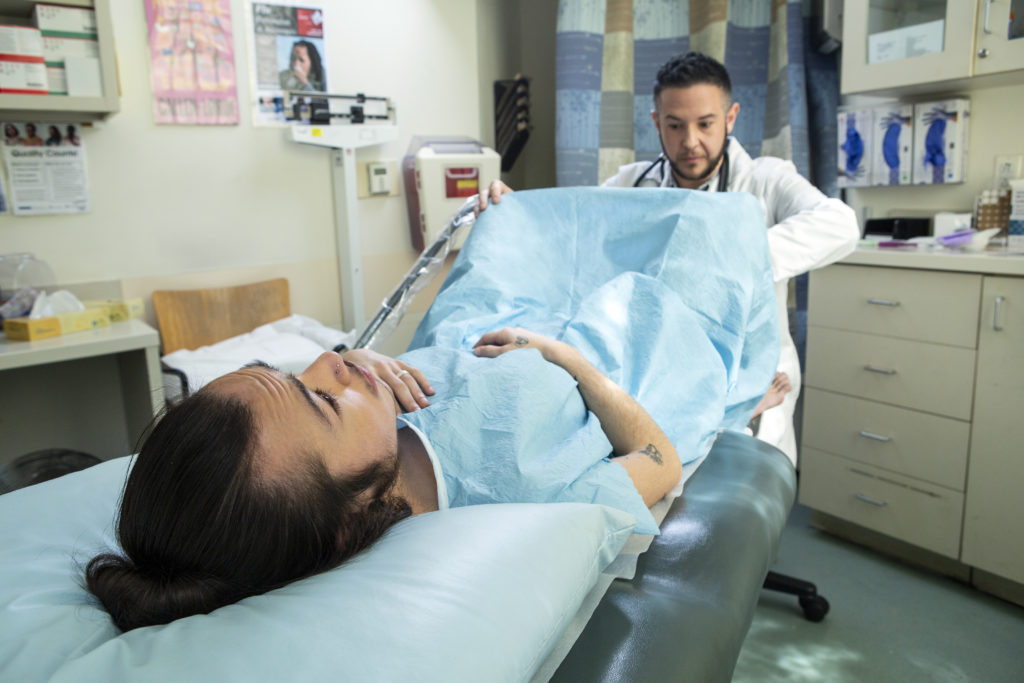Dear nonprofits: There is no meeting in the middle when it comes to anti-abortion legislation
 March 31, 2021
Category: Featured, Medium, Purpose
March 31, 2021
Category: Featured, Medium, Purpose
Disclosures
This guest column was cowritten by Elicia Gonzales, executive director of the Women’s Medical Fund (WMF), and Signe Espinoza, director of policy at Planned Parenthood PA Advocates and WMF board vice-chair.Updates
Updated to add links April 1, 2021 (10:05 a.m.)The Pennsylvania General Assembly has introduced several pieces of anti-abortion legislation. But let’s call it what it really is — white supremacy in action.
These tactics have been used for decades as a way to terrorize our communities, particularly Black and brown individuals living in poverty. Although the 1973 Supreme Court decision, Roe v. Wade, assured the right to a legal abortion, this promise was broken for individuals living in poverty in Pennsylvania when Congress enacted the Hyde Amendment that cut federal Medicaid funds for abortions in 1977 and the PA General Assembly followed suit with state Medicaid funds in 1985.
In response to this racially unjust law, Women’s Medical Fund was founded that same year to ensure that anyone who needed an abortion could get one, no matter their zip code, income, or reason.
Restrictive and violent policies like the Hyde Amendment and the Pennsylvania Abortion Control Act (PACA) have not only chipped away access to abortion care, but make it is easier to access a fake clinic, like those funded by Real Alternatives. We are outraged that the State prevents people living in poverty from using their insurance to pay for their abortion, while at the same time, it has given millions of dollars to fund fake clinics that manipulate and deceive people out of getting an abortion. We heard of one case where a pregnant woman was seeking abortion care and was told that she had miscarried. Several weeks later, she learned that she was still pregnant.
We call on others working in the nonprofit sector to interrogate your own anti-Blackness and consider how you and your organization uphold white supremacy.
Make no mistake. Funding Real Alternatives while restricting abortion access are forms of state-sanctioned violence that perpetuate white supremacy. They are parts of this nation’s long history of enacting harm on certain individuals, namely Black people who can get pregnant.
During slavery, Black women were vessels for reproductive control for the benefit of white slave masters and their families. Black bodies were used in experimental, dangerous surgeries that laid the groundwork for obstetrical advances. Abortion bans disproportionately harm Black people, who are three times as likely to die during childbirth as white people. Also, the pandemic continues to disproportionately impact Black and brown communities, making it that much more challenging to get the care they need.
Yet our elected officials are more focused on restricting access to healthcare. These pieces of anti-abortion legislation only further demonstrate the long-standing systemic racism at the core of our society.
As leaders at reproductive health and justice organizations, we know that abortion liberation is deeply connected to dismantling white supremacy.
In this moment, we call on others working in the nonprofit sector to interrogate your own anti-Blackness and consider how you and your organization uphold white supremacy.
Our work must center and uplift people who are most impacted by sexual and reproductive oppression. Abortion bans and not paying staff a living wage have a common goal: to stop people, particularly Black, brown, and other marginalized people, from having agency over their own bodies and being well, free, and whole. Nonprofits are a system like any other and we owe it to our communities to fight against white supremacy and create a world in which everyone, regardless of who they might be, can determine themselves freely.
We also call on leaders working toward sexual and reproductive freedom to destigmatize abortion.
We also call on leaders working toward sexual and reproductive freedom to destigmatize abortion.
It is the stigmatization of abortion access that fuels the anti-abortion movement and people in positions of power, like legislators and nonprofit leaders, to “meet in the middle,” “agree to disagree,” and “find common ground.” In order to achieve true sexual and reproductive freedom, we need people who are committed to this work to unapologetically support abortion access on demand. There is no meeting in the middle when it comes to anti-abortion legislation or rhetoric.
Destigmatizing abortion includes honoring all of the folx that seek abortions: Black and brown people, trans and non-binary folx, parenting individuals, and young people.
If you leave these voices out, you are not only wrong in your assumptions as to who accesses abortion care, but you are excluding the voices and experiences of people who are disproportionately affected by barriers to abortion care.
We cannot work to achieve true sexual and reproductive freedom, while communities across our state continue to struggle to access abortion care and our state government continues to fund Real Alternatives.
What has been happening in our state exemplifies state-sanctioned violence, and we need you all to name this in your programming, conversations, and in your board meetings.
We need to hold ourselves and people in positions of power accountable, because lives depend on it.
Trending News











